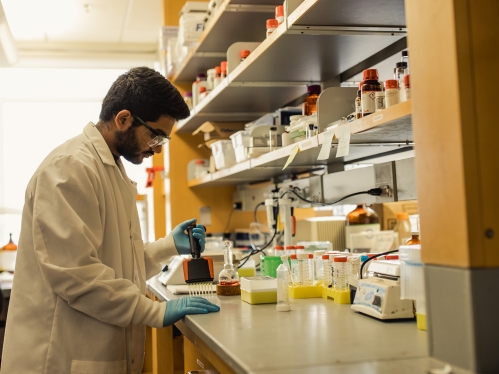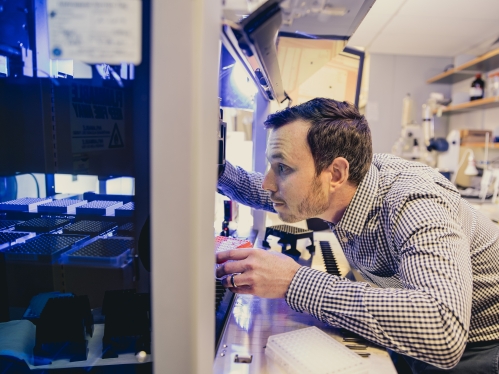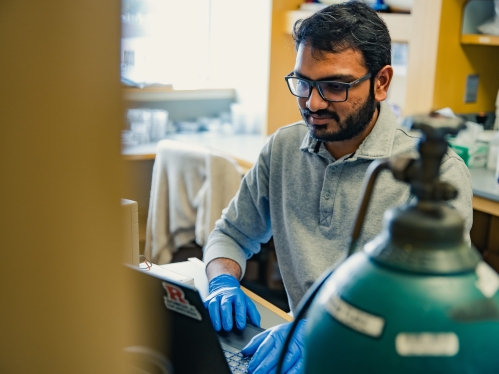Master of Science Degree
Degree Highlights
Rutgers School of Engineering’s Master of Science (MS) in Biomedical Engineering is a thesis based degree program that provides outstanding graduate level training in six key areas of biomedical engineering and technology: molecular systems; nanosystems and microsystems; tissue engineering and regenerative medicine; biomechanics and rehabilitation engineering; physiologic systems; and bioinstrumentation, biomedical imaging, and neuroengineering.
This degree can be a pathway to our doctoral degree program.

Applied Learning
With guidance from a world-class faculty in a state of-the-art facility, students master essential aspects of biomedical engineering practice and research. By providing students with a solid foundation in life science and engineering, as well as opportunities to engage in and conduct original research, the MS in Biomedical Engineering program prepares them for professional advancement in a dynamic, rapidly advancing field.

MS Degree Requirements
- 33 credit thesis program – 27 course credits and 6 research credits
- Written research-based thesis
- Oral thesis defense



